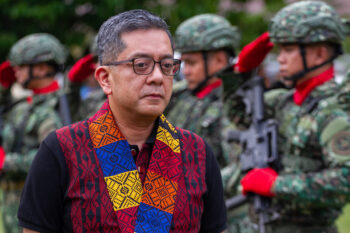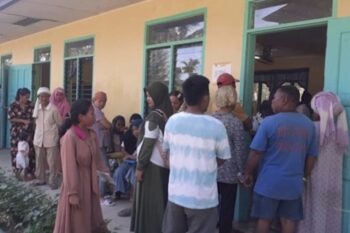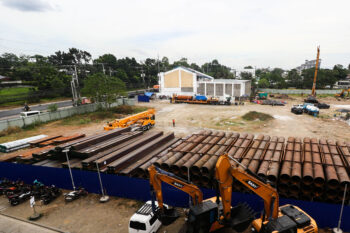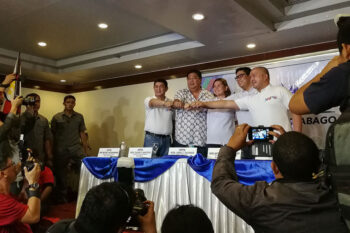MELBOURNE, Australia (MindaNews / 17 Dec) – I have always wondered why the federal form of government was not adopted in the 1935 Constitution. The Constitutional Convention, elected for the purpose of drafting the latter, was without doubt overtly partial to the United Stated constitutional structure. So why did they diverge and adopt a unitary form of government? Sadly, this historical conundrum cannot be solved here but I suspect the answer will also explain Malacañang’s omnipresence in the management of government.
Indeed, our constitutional order is structured in such a way that governance of the country is overly reliant on the very person holding fort in Malacañang. The bitter irony here is that those terrible years under the Marcos dictatorship should have jolted our heads not to give too much power to a single person. And yet Sections 1 and 17 of Article VII of the 1987 Constitution still do exactly that.
We really have to question the rationality as well as the practicality of a governance framework wherein the delivery of public services, from revenue collection to urban housing, all intersect at the Office of the President. We have known for years that Malacañang’s strong influence in all matters of government is the very life-source of political patronage. Patronage of course, is the very lifeblood of political dynasties. And the unabated reign of dynastic politicians is the very evil that sustains graft and corruption in our political system.
The remedy to this problem seems clear enough. We must find a way to re-configure executive authority in order to minimize, if not remove, the hovering influence of Malacañang in the overall administration of government. There are two ways to accomplish this and the first one is constitutional reform.
South Korea’s executive structure in its constitution is worth emulating here. Article 66 (4) of the Constitution of the Republic of Korea explicitly provides that “Executive power shall be vested in the Executive Branch headed by the President.” The other members of the Executive Branch are the Prime Minister (see Article 86) and the Supreme Council (see Article 88). The most notable difference in the South Korean model is that executive power is given to an institution and not to a person. Moreover, under this framework, the exercise of executive power is diffused because the same is technically held by three persons. And therefore the responsibility to manage government is accordingly distributed. The fate of the nation’s affairs does actually not revolve around a single person.
The second way is structural reform through legislation. Congress can help relieve the chokehold of Malacañang over government administration by institutionalizing the involvement of the community in the various offices in the executive branch. In other parts of the globe, non-government sectors of the polity now play an increasingly important role in designing and executing policies and services. The fact is some public goods are best delivered by decentralized specialist agencies that are managed by public servants with the appropriate specialized skills set. The demands of the times means that leaving the delivery of these public goods in the hands of people whose only qualification is being friends with the powers-that-be is no longer tenable.
A relevant example here would be disaster risk reduction and management. As an island nation, we have always been aware of how vulnerable we are to the whims of Mother Nature. Recent experiences have shown that disaster risk reduction and management is a gargantuan and highly complex undertaking. Concerns that must be reckoned here are not limited to having an evacuation plan and ensuring the timely delivery of relief goods. The more pressing matters range from rethinking how homes and buildings are designed and constructed to make them more resilient, to possibly altering or modifying the topography of flood-prone areas to create new water ways, catchments, and even wetlands. It stands to reason therefore that the governance of this public service should be put in the hands of people with the relevant training and experience.
Sadly this is not the case. The Malacañang-centric model is still evident in the National Disaster Risk Reduction and Management Council (NDRRMC) as organized in Republic Act No. 10121. Section 5 therein fills this body with 34 members who all have institutional links to Malacañang. Only 5 slots are reserved for the private sector.
Compare this model to the governance structure of the Victoria State Emergency Service (VICSES), an equivalent organization for the State of Victoria in Australia. This body is governed by a board of directors that is accountable to the Victorian state government and is run by an executive management team. Board members and the managers of this office all possess a wealth of experience in emergency services, finance and other business industries. This office even has a Director for Emergency Management Planning and Communications, the incumbent of which is touted to have “over 15 years of marketing and communications experience and over eight years in emergency management planning”.
The organizational difference between these two government agencies is painfully obvious. To even touch on the inadequacy of the NDRRMC when compared to the VICSES is like flogging a dead horse. Nevertheless, it has to be pointed out that it does not bode well for Filipinos when disaster risk reduction and management is left in the hands of government officials whose minds are always dominated by politicking. But the more important point that needs to be made here is that giving the community a direct line in managing the delivery of services could significantly weaken the leverage of politicians (i.e. Malacañang lackeys). This is a scenario which could potentially disturb the culture of patronage in our political system.
(MindaViews is the opinion section of MindaNews. PeaceTalk is open to anyone who wishes to share his/her thoughts on peace in Mindanao. Atty. Michael Henry Ll. Yusingco is a practicing lawyer. He is presently completing a Masters of Law and Development in Melbourne Law School. He recently published a book entitled, Rethinking the Bangsamoro Perspective.)







